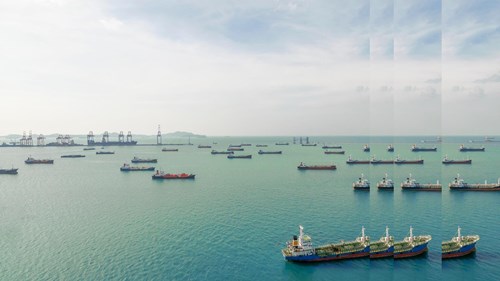FCPA prosecution makes a comeback: DOJ ends pause and sets new guidelines
The prosecution of violations of the U.S. Foreign Corrupt Practices Act ("FCPA") is being resumed in the U.S., under changed conditions. On 9 June 2025, the U.S. Department of Justice ("DOJ") published a memorandum from the Deputy Attorney General that sets out new internal guidelines for handling FCPA proceedings.
In February 2025, President Trump had already ordered a 180-day pause for new FCPA proceedings with Executive Order 14209 and announced a reorientation of prosecutions under the FCPA (see also our news article from 14 February 2025, 2025: Pause for the prosecution of FCPA violations).
The memorandum now ends this pause and clarifies the conditions under which new investigations should be initiated or existing proceedings continued.
Aim
According to the memorandum, the aim of the guidelines is to avoid undue burdens for American companies that operate abroad and to focus on offences that directly undermine the national interests of the United States. In future, criminal prosecution should target the areas where corruption directly jeopardizes these interests.
Key points of the new guidelines
The Deputy Attorney General's memorandum sets forth the following non-exhaustive factors for enforcing the FCPA:
- Focus on cases that are sensitive in terms of security and economic policy: Investigations should concentrate primarily on matters that
- are linked to the activities of cartels or transnational criminal organizations,
- have injured specific and identifiable US companies economically or have deprived them of fair access to compete or
- relate to sectors with key infrastructure or assets (for example, defense or energy).
- Limitation to investigations of serious misconduct: Investigations should not be conducted into routine business practices or low-dollar courtesies. Facilitation payments - payments to expedite official procedures such as approvals - were already excluded from the scope of the FCPA under current law (section 78dd-1(b)). The memorandum confirms that such payments will continue not to be prosecuted. Priority is given to cases with strong indicia to corrupt intent, such as high bribes or deliberate concealment of payment transactions.
- Consideration of collateral consequences: Possible negative effects on employees, business partners and ongoing business activities should be taken into account at an early stage of the investigation, not only during the settlement or sanctioning process.
- Focus on individual responsibilities: The memorandum instructs public prosecutors to focus on cases in which individuals have demonstrated criminally relevant behavior. Non-specific malfeasance attributed to corporate structures should not be the focus.
- Higher barriers for initiating new FCPA proceedings: New investigations or enforcement actions may only be begun with explicit approval from the Assistant Attorney General for the Criminal Division or a more senior DOJ official.
Assessment
It comes as no surprise that corruption remains illegal and will continue to be prosecuted under the new guidelines. Prohibited payments to foreign officials are still unlawful, even if the DOJ in specific instances decides not to pursue enforcement in individual cases. What is new, however, is the clarity with which the memorandum establishes political benchmarks. The protection of U.S. interests explicitly moves to the forefront, accompanied by a noticeable America-First paradigm. The memorandum issued by the Deputy Attorney General makes it clear that neither the location of the corporate headquarters nor the location of the incident is decisive. What matters more is whether the conduct has a tangible impact on the United States or its economic interests. Companies should be particularly vigilant if they are operating in sectors relevant to U.S. national security or in markets where cartels or transnational criminal organizations are present, such as parts of Latin America. Foreign companies that successfully compete against U.S. competitors may also come under increased scrutiny. Although the DOJ outlines criteria for assessing the relevance of a matter, these remain open for interpretation. In the future, the decision to prosecute under the FCPA may not only depend on legal considerations but also incorporate (economic) political factors.
Thus, U.S. authorities continue FCPA investigations, albeit with a shifted focus. The extent of this new approach in practice is currently difficult to predict. Companies with connections to the U.S. market should thoroughly review their compliance structures to ensure they meet the expectations of the DOJ.
Well
informed
Subscribe to our newsletter now to stay up to date on the latest developments.
Subscribe now












